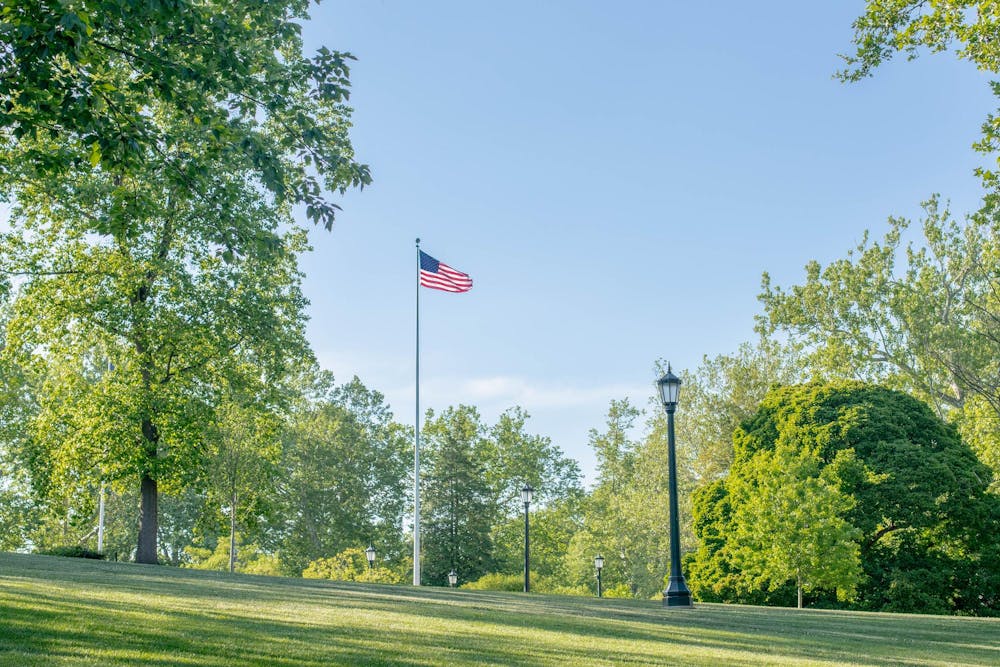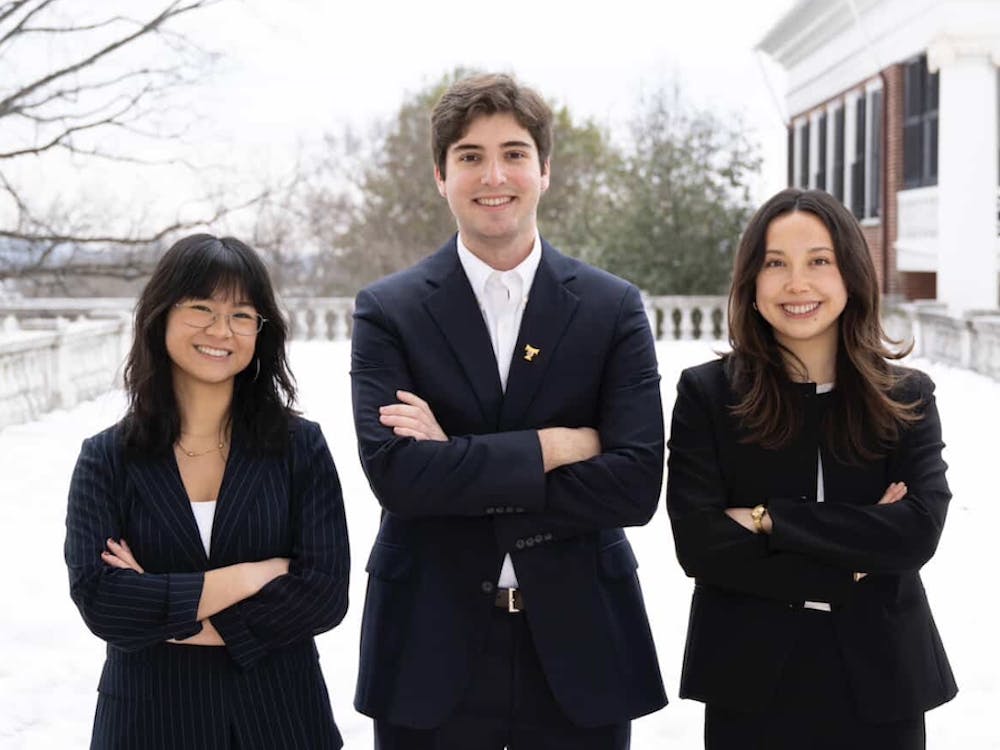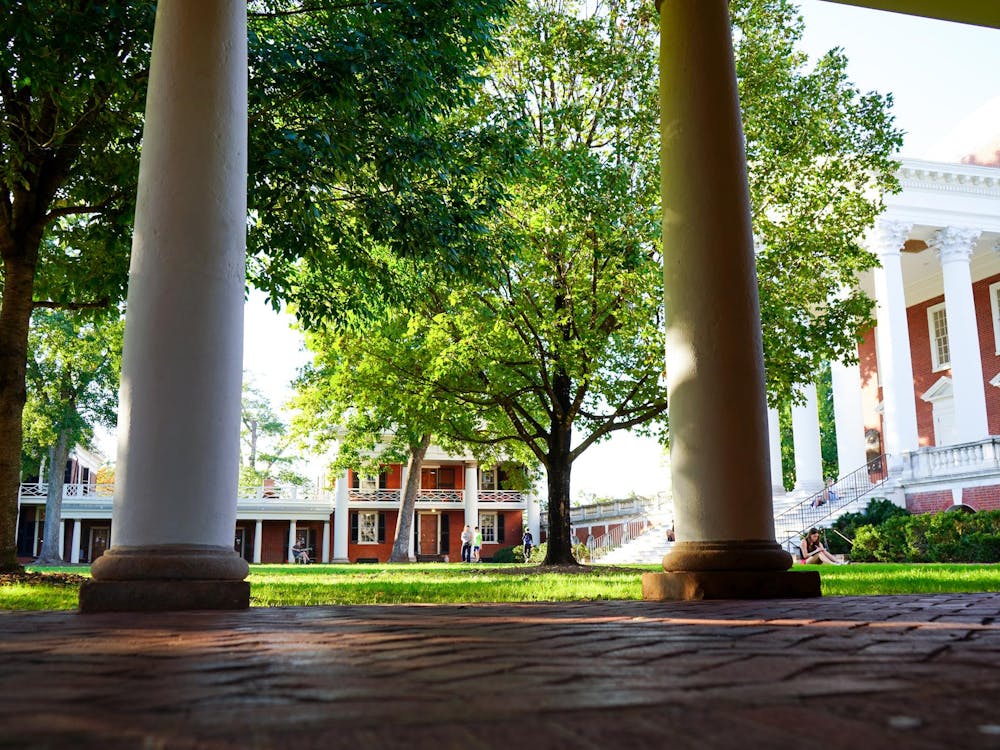In the wake of Charlie Kirk’s assassination Sept. 10, there has been renewed debate at colleges and universities nationwide about free speech and political messaging in higher education. Multiple universities have let faculty and staff members go, expelled students or promised to investigate and discipline educators who have responded to Kirk’s death “inappropriately.”
These concerns about free speech nationwide have found their way to the University. The chief of staff in the governor’s office sent an email Sept. 12 to all Commonwealth employees, which includes University faculty and staff, to remind them to positively represent the Commonwealth in and outside work.
On the students’ end, the College Republicans at the University sent a letter Sept. 11 demanding employees of the University who reacted favorably to Kirk’s death face disciplinary action, and other students weighed in on what the limits of free speech should be regarding reactions to Kirk’s death.
Kirk was a conservative activist and founder of Turning Point USA — a nonprofit organization advocating for conservative politics primarily among young adults. While debating Utah Valley University community members, Kirk was shot in the neck and pronounced dead hours later. Suspect Tyler Robinson, 22, was charged with murder Sept. 16. Since Kirk’s death, President Donald Trump has vowed retribution, saying he will go after the “radical left,” which he claimed is to blame for a rise in political violence in the United States.
At the University, students have expressed mixed reactions in the wake of Kirk’s death. Second-year College student Rebecca Mooney said she believes there are certainly respectful and disrespectful ways to react to Kirk’s death. However, she said it is hypocritical for Kirk supporters to condemn those who reacted to his death favorably because Kirk himself was an adamant supporter of exercising First Amendment rights.
“Free speech is free speech. That’s why the First Amendment exists,” Mooney said. “It’s ironic — the setting in which he was assassinated was a setting in which he was expressing [his] First Amendment [right].”
The First Amendment grants Americans free speech and expression rights. While the U.S. Supreme Court has struggled to precisely define this right’s implications, its historical decisions have clarified this freedom as the right to “use certain offensive words and phrases to convey political messages,” as per the Cohen v. California decision.
Since Kirk’s death, some employees of the Commonwealth have publicly reacted favorably to Kirk’s death and faced consequences. A local school board member resigned and a Newport News public school employee has been placed on administrative leave following investigations into social media activity related to Kirk’s assassination.
The Virginia Department of Education published a statement Sept. 13 regarding “troubling” social media posts. The posts allegedly “celebrated” Kirk’s assassination, and the statement condemned this support of political violence that has “no place in Virginia’s public schools.” According to the statement, the DOE will support superintendents who pursue social media reports, and it will evaluate options for state action against local school divisions who do not hold personnel accountable.
“Local school divisions should promptly investigate [the social media] reports … and refer teachers and administrators who have violated these essential standards … for licensure revocation,” the statement read.
With regards to how an educator’s right to free speech intersects with their duty to serve students, Second-year College student Margaret Barton believes University professors should avoid speaking in a way that devalues Kirk’s personhood and stick to purely political issues as topics of discussion.
Barton said that a professor’s role is to educate, and inserting opinions like praise of Kirk’s death can take away from this mission. While she recommends professors remain loyal to their job’s purpose, Barton said that ultimately, although a professor’s words have the power to harm the reputation of the institution, those employed at the University have freedom of speech.
“I think that they do have the right to say [their honest reactions to Kirk’s death], and they are allowed to say that due to freedom of speech,” Barton said. “However, I do think for the overall reputation of the University and who they want their students to be and who they want their alumni to reflect, I think that it isn't the best look for the University.”
Barton said she does not believe professors should be fired over a social media post or an expression of their views, but that the University could intervene and talk to professors about their duty to uphold the institution’s image.
Contracted Independent Organizations also weighed in on the issue of free speech in regards to reactions to Kirk’s death. The Executive Board of the CRs circulated a letter Sept. 11 via Instagram and X, addressed to Interim University President Paul Mahoney and the Board of Visitors. The letter expressed concern over reactions of professors, teaching assistants and students on the assassination of Kirk which CRs deemed unacceptable.
According to the letter, many University members justified or celebrated Kirk’s death, overlooking the horrible reality of political violence in America and the grief many students were experiencing. The letter said that conservatives have long been neglected at the University and had their views dismissed, which the authors say must come to an end.
“Many … met this gruesome news with joy, laughter, cheering the violence on and wishing it upon us conservatives,” the letter read. “Conservatives at the University of Virginia have been socially marginalized, unwelcomed and hated inside and outside the classroom.”
In response to the alleged hateful reactions by University members, the letter demanded that Mahoney and the Board take action to discipline those who “justified or called for violence.”
“If this University cared about free speech or democracy, it would act, and that starts with your actions or leadership,” the letter read.
The Cavalier Daily reached out for a comment from CRs, and the organization responded that it has an internal policy of no statements. Reece Smith, CRs president and Batten graduate student, did direct The Cavalier Daily to a post on X by University Librarian Tyler Magill, a faculty member who expressed his reaction to Kirk’s death via social media. Magill, in response to other posts pertaining to Kirk’s death, justified the assassination.
“You have to admit, he practiced what he preached: bleeding out after getting shot,” one post read. “May [Kirk] know nothing but the torment he happily sowed for others,” another read.
CRs reposted a compilation of Magill’s posts to its own page.
The Cavalier Daily reached out to Magill for comment, and he said, under advice of counsel, that his viewpoints shared on social media do not reflect the University’s viewpoints at large — he speaks solely for himself.
“My statements on social media in no way necessarily reflect the opinions or beliefs of the University of Virginia,” Magill wrote in the statement. “U.Va. should not be held accountable for my statements in any way. I do not speak on behalf of the University, nor have I ever in an official or unofficial capacity.”
In response to CRs’s posted letter on X, University community members and unaffiliated users commented their views on the letter and Kirk’s death at large, including Asst. Commerce Prof. Robert Parham.
“With all my sympathy, I think Charlie would have been opposed to [this call for disciplinary action], especially for TAs and peers. He was never into policing words, which is what I loved about him,” Parham commented. “I publicly expressed joy over the Pager operation Israel pulled off. Should students ask for me to be disciplined? I think not.”
Parham has declined a request for comment.
John Littel, Gov. Glenn Youngkin’s chief of staff, sent an email to all employees of the Commonwealth in regards to Kirk’s death and a rejection of all forms of political violence. The letter compared this moment of national unity to Sept. 11, 2001 attacks to “defeat the evils that harm our democracy,” and it said that free speech holds a particularly relevant meaning in this moment.
“While Virginia has led the way during the Founding of our Nation to ensure that the inalienable God-given rights of liberty and free speech were protected, we are not immune to today’s assault on those rights,” Littel’s letter read.
According to the letter, state employees must hold themselves to a higher standard when it comes to their speech — they must represent the Commonwealth well inside and outside of work. Littel did not overtly mention or restrict employees’ free speech rights, but he asked employees to refrain from publicly reacting to Kirk’s death in a way that would not reflect well on the Commonwealth.
“[Public servants] are appropriately held to a higher standard. That means not only representing the Commonwealth during work, but also outside of the office and, especially in social media,” The letter read. “We have received notice of several posts that clearly violate this standard of conduct. I remind you of the standards that are expected of state employees.”
The letter did not specify any consequences should employees not meet these standards during work or on social media.
Faculty Senate Chair Jeri Seidman said she has received concerns from faculty on the letter from Littel, and she emailed questions and concerns to Mahoney. Mahoney responded, assuring faculty that they have the right to express themselves without fear of retaliation.
“When [faculty] speak or write as citizens, they should be free from institutional censorship or discipline,” Mahoney wrote in his response. “Their special position in the community imposes special obligations.”
Seidman said she does not know of any faculty or staff members who have faced discipline for expressing personal views on Kirk’s death, and she has expressed concern to members of the University administration about CRs’ letter.
Recently, Trump has targeted media organizations who have expressed opposing views to himself and his administration, and ABC temporarily pulled TV host Jimmy Kimmel off air for comments over the right’s reaction to Kirk’s death. Kimmel returned to air Tuesday. According to Trump, many networks that criticize him should have their licenses revoked — the excessive criticism is “illegal” and no longer can be categorized as free speech.
Second-year College student Francesca Wood said that she thinks that the promise of free speech should not enable hate speech.
“I don't think you can celebrate someone's assassination and murder in front of hundreds and thousands of people, like it's free speech,” Wood said. “Free speech doesn't exist for you to be able to say whatever you want.”
Third-year College student Katie Rice said she heard a range of reactions to Kirk’s death, and those who reacted favorably to his assassination took her aback.
“I was with a girl who said, ‘I hope he dies,’” Rice said. “Honestly, that was a bit shocking to hear — regardless of someone's political stances, we should have appreciation for the magnitude of [death].”
Rice said she also heard of a professor who seemed to imply that Kirk’s death was warranted.
“I had a professor in an immigration class … say that he wouldn't comment, but the innuendo was that … he had a positive reaction towards [Kirk’s] passing, which was definitely disconcerting for me as a student,” Rice said. “It was honestly pretty sad to hear someone have that kind of reaction to a person's graphic murder.”
During his time as a conservative public speaker, Kirk used his platform to convey the importance of free speech and open dialogue. He routinely debated progressive students and media personalities and was a strong proponent of the First Amendment.
"Hate speech does not exist legally in America," he wrote on X last year. "There's ugly speech. There's gross speech. There's evil speech. And ALL of it is protected by the First Amendment. Keep America free."
A previous version of this article incorrectly stated that Parham had deleted his comment. He did not. The article has been updated to reflect this change.







